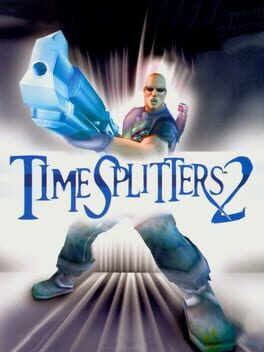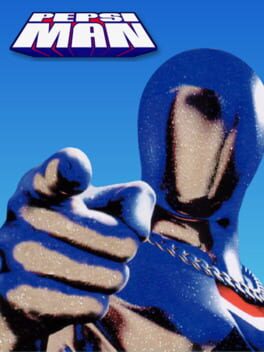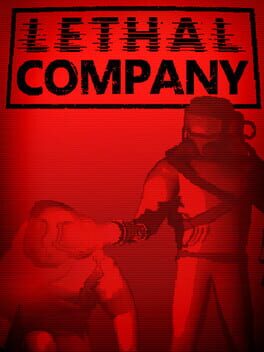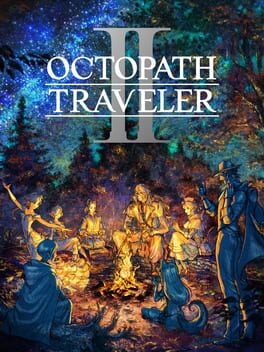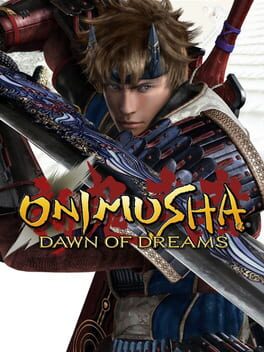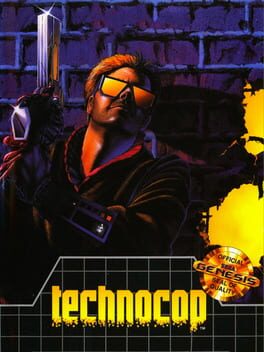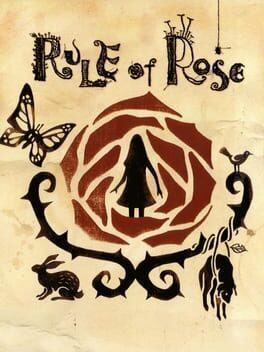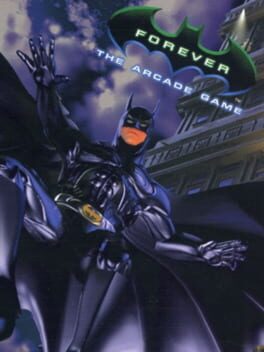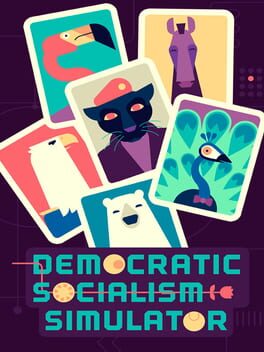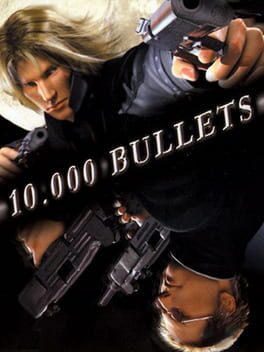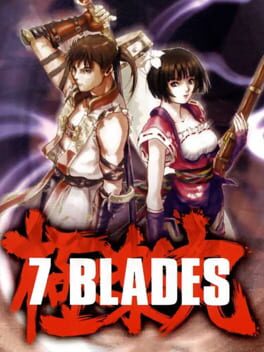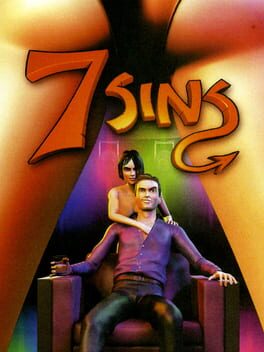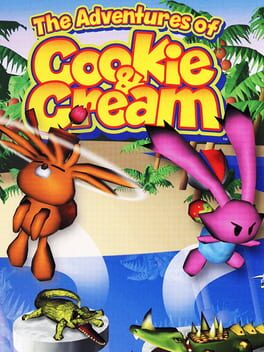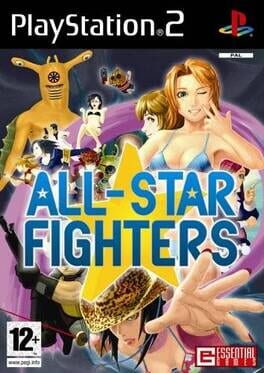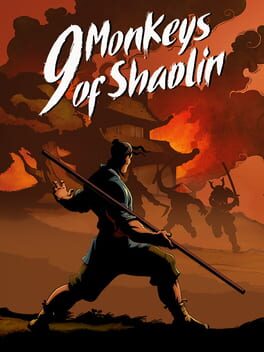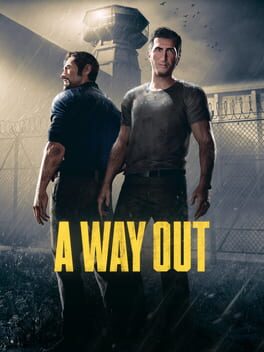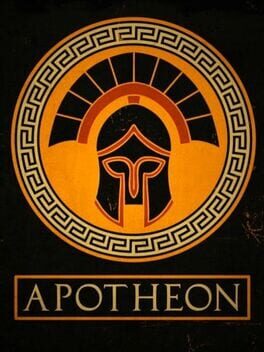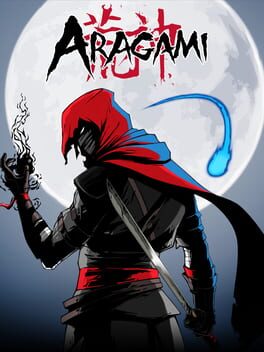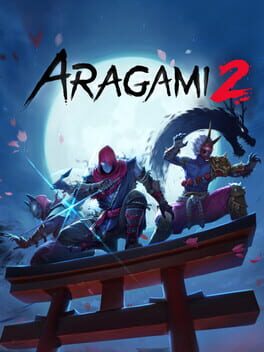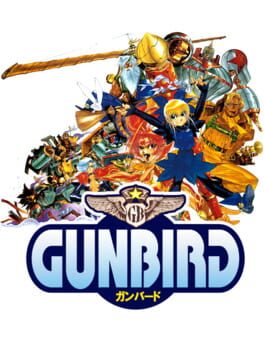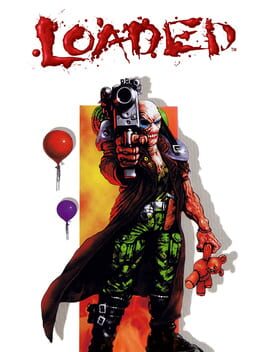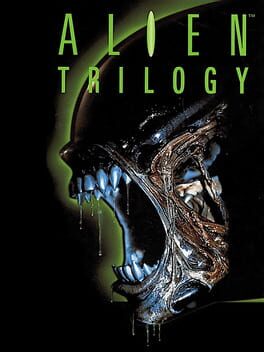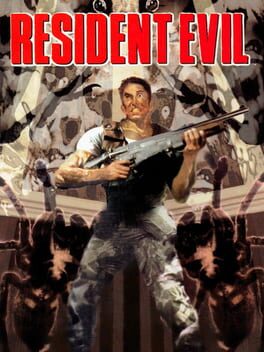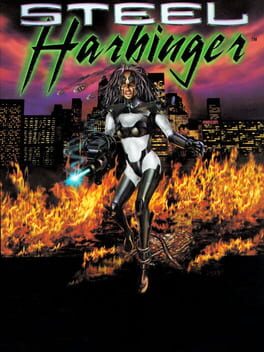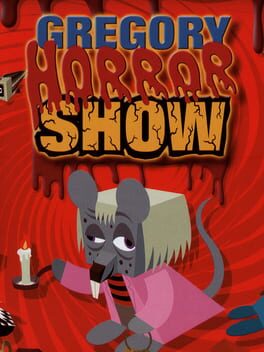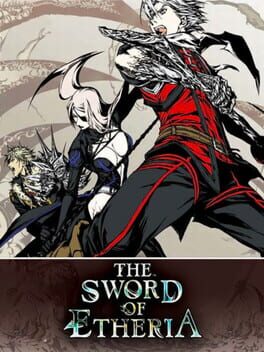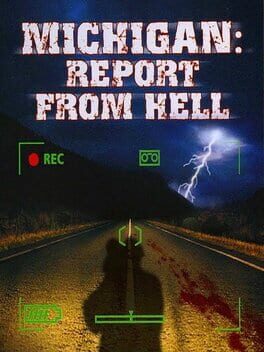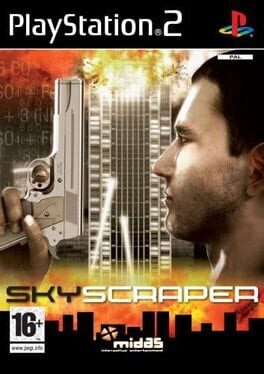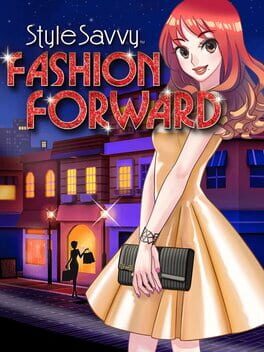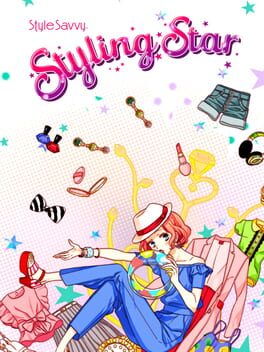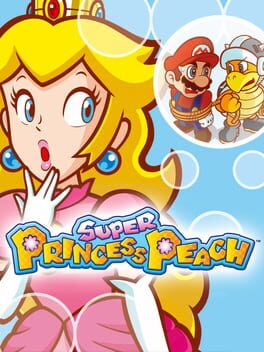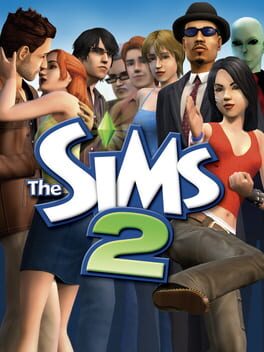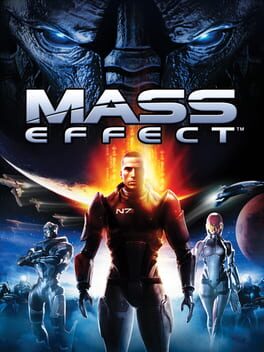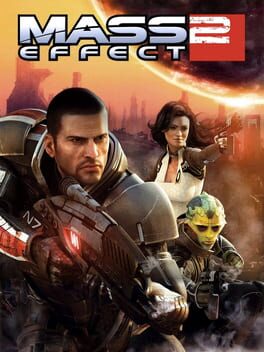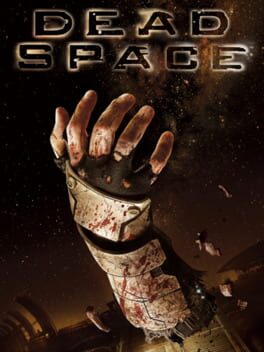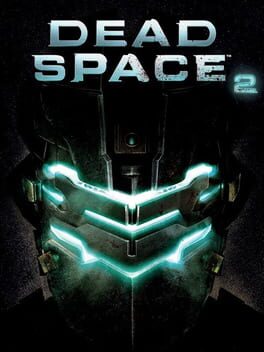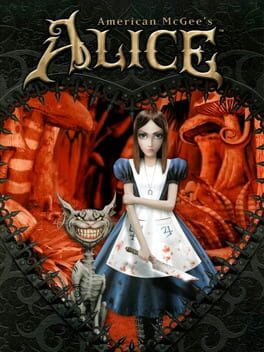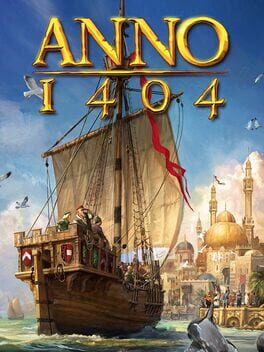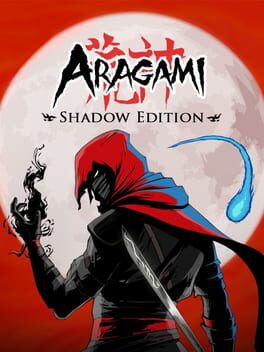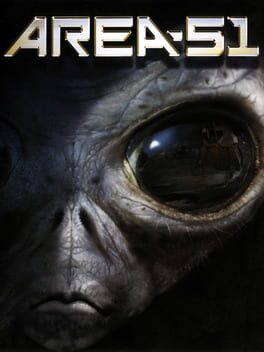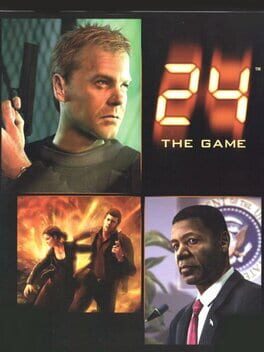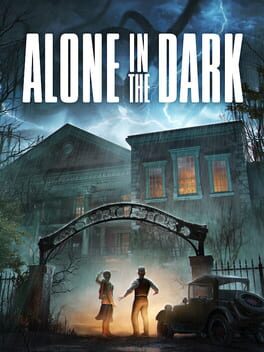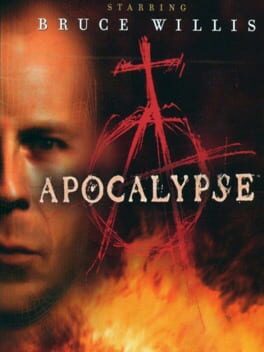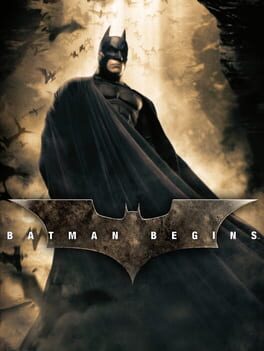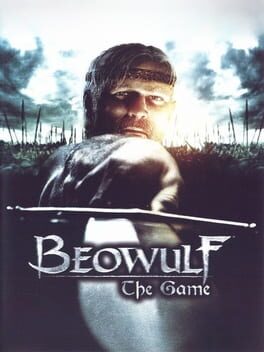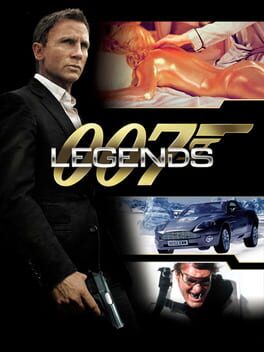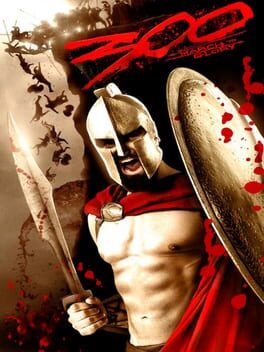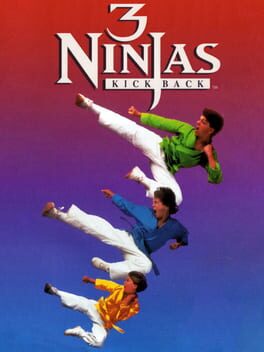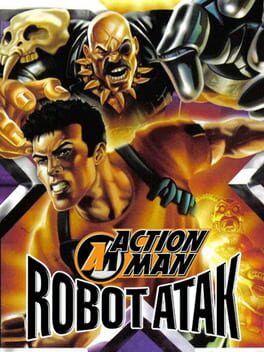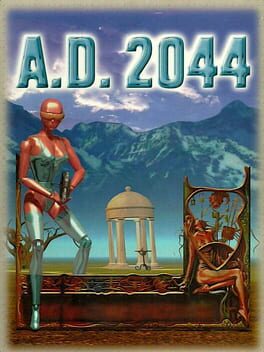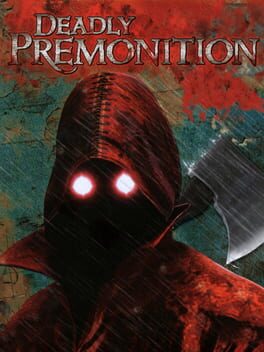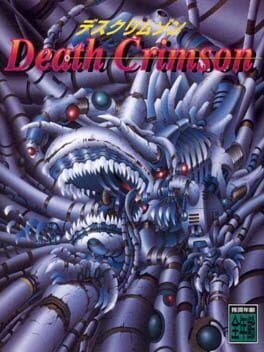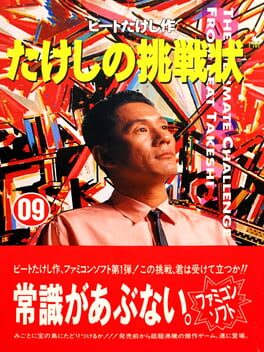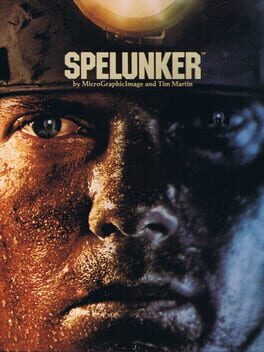abeboi
10 reviews liked by abeboi
TimeSplitters 2
2002
In my humble opinion, one of the best games ever made.
In terms of just sheer variety of gameplay, story, visuals, style, it's hard to think of many games that match up with this.
There's a real magic to the way it bounces so effortlessly from 1930s gangster stuff in Chicago, to Gothic Undead Horror in 1800's Notre dame, to Sci-Fi Terminator-Future War. Each with it's own gameplay, music, visual look, array of time period correct weapons. In Chicago you'll meet an informant, bust up barrels of liquor, whereas in the robot factory you'll control laser-turret cameras, and fight a giant drill-armed machine boss. One is moody with a noir sort of jazz OST, and the other features pounding techno bass.
All this is held up with a tight responsive control scheme, a huge array of unlockable content, a side arcade league mode filled with bots to face off against, challenge mode content. But best of all a full comprehensive multiplayer, that practically never stops being fun.
I can easily return to this game whenever, it's perfect.
In terms of just sheer variety of gameplay, story, visuals, style, it's hard to think of many games that match up with this.
There's a real magic to the way it bounces so effortlessly from 1930s gangster stuff in Chicago, to Gothic Undead Horror in 1800's Notre dame, to Sci-Fi Terminator-Future War. Each with it's own gameplay, music, visual look, array of time period correct weapons. In Chicago you'll meet an informant, bust up barrels of liquor, whereas in the robot factory you'll control laser-turret cameras, and fight a giant drill-armed machine boss. One is moody with a noir sort of jazz OST, and the other features pounding techno bass.
All this is held up with a tight responsive control scheme, a huge array of unlockable content, a side arcade league mode filled with bots to face off against, challenge mode content. But best of all a full comprehensive multiplayer, that practically never stops being fun.
I can easily return to this game whenever, it's perfect.
Pepsiman
1999
Fallout
1997
Because of how much I love Fallout: New Vegas and hate Fallout 4, I have been wanting to play through the first two Fallout games for quite a while now, but as a Mac user, it has been a long journey trying to find a way to play this game. For the past few years, I've tried everything from playing the DOS version on DOSBox to attempting to run an old-school Macintosh emulator and getting so confused that I gave it up entirely, but when I found a fairly recent guide to running PC games on a Mac alongside the discovery both of these games were on GOG for a total of £4, I decided that it wasn't that big of a risk to see if this new method would work, and it did. Now that I've finally gotten the chance to play this game after all these years, I can safely say that Fallout fully lived up to my expectations, and I spent the past three days really looking forward to playing it whenever I wasn't already doing so.
With the releases of the newer games in the franchise and especially the recent TV show that I still haven't seen yet, the aesthetics and iconography of the Fallout franchise have become very distinct, but despite that, going into this first entry felt like I was taking on a completely different beast thanks to its overwhelmingly daunting atmosphere. Even with its moments of black comedy and surrealism, Fallout is a bleak, desolate, and harsh experience, as the game simply throws you out into a post-apocalyptic California and has you wander around completely on your own to find what you need, connect with the game's various settlements and factions, and not get mauled to death while doing so. Thanks to the steep learning curve and turn-based tactical combat system, exploring the wasteland feels both genuinely dangerous and wholly rewarding, with the careful planning that goes into both choosing certain skills and perks and surviving the enemy encounters made Fallout a challenging, yet satisfying experience. While the game does feature the Raygun Gothic artstyle that went on to become synonymous with the franchise, the approach that Fallout took to bringing it to life made the post-nuclear environments feel significantly less comical than its sequels, with the detailed and grisly spritework, Ron Perlman's haunting narration, and Mark Morgan's fantastic dark ambient score all making the game feel uncompromisingly raw and gritty while still giving the satire some time to shine.
Although the game's narrative structure is somewhat unconventional, Fallout still ended up being a tightly written experience thanks to its compelling and morally ambiguous sidequests, unique characters, and fascinating lore, as I was hooked right from the opening cinematic and I stayed invested until the credits rolled. The multiple ways in which you could approach practically every situation was one of my favorite elements of the game, and that sense of interactivity made the otherwise small scale of Fallout feel dense and compact. While the general quality of voice acting in video games has never been all that consistent, going into older games usually comes at the cost of terrible voice acting, and so I was completely surprised by the genuinely flawless performances from all of the voiced characters in Fallout, with Harold and the Master being the highlights of the cast for me. Fallout was both a strong start for an iconic franchise that stood the test of time and a fantastic RPG in its own right, and since Fallout 2 is supposedly even better, I can't wait to play it.
With the releases of the newer games in the franchise and especially the recent TV show that I still haven't seen yet, the aesthetics and iconography of the Fallout franchise have become very distinct, but despite that, going into this first entry felt like I was taking on a completely different beast thanks to its overwhelmingly daunting atmosphere. Even with its moments of black comedy and surrealism, Fallout is a bleak, desolate, and harsh experience, as the game simply throws you out into a post-apocalyptic California and has you wander around completely on your own to find what you need, connect with the game's various settlements and factions, and not get mauled to death while doing so. Thanks to the steep learning curve and turn-based tactical combat system, exploring the wasteland feels both genuinely dangerous and wholly rewarding, with the careful planning that goes into both choosing certain skills and perks and surviving the enemy encounters made Fallout a challenging, yet satisfying experience. While the game does feature the Raygun Gothic artstyle that went on to become synonymous with the franchise, the approach that Fallout took to bringing it to life made the post-nuclear environments feel significantly less comical than its sequels, with the detailed and grisly spritework, Ron Perlman's haunting narration, and Mark Morgan's fantastic dark ambient score all making the game feel uncompromisingly raw and gritty while still giving the satire some time to shine.
Although the game's narrative structure is somewhat unconventional, Fallout still ended up being a tightly written experience thanks to its compelling and morally ambiguous sidequests, unique characters, and fascinating lore, as I was hooked right from the opening cinematic and I stayed invested until the credits rolled. The multiple ways in which you could approach practically every situation was one of my favorite elements of the game, and that sense of interactivity made the otherwise small scale of Fallout feel dense and compact. While the general quality of voice acting in video games has never been all that consistent, going into older games usually comes at the cost of terrible voice acting, and so I was completely surprised by the genuinely flawless performances from all of the voiced characters in Fallout, with Harold and the Master being the highlights of the cast for me. Fallout was both a strong start for an iconic franchise that stood the test of time and a fantastic RPG in its own right, and since Fallout 2 is supposedly even better, I can't wait to play it.
Lethal Company
2023
Octopath Traveler II
2023
When Octopath Traveler 1 came out in 2018, it was kind of a big moment for pixel rpgs. The "HD-2D" art-style was a stunning graphical wonder. There was some broad criticism by some people who considered it ugly or "lazy", but like most of the endless online discourse, it faded away once there was something else to focus on. But within the last five years, the HD 2D style has shown it might be here to stay. It encouraged Square Enix to consider bringing back lost pixel RPGs that players are still invested in. After several poor remaster attempts, the Final Fantasy Remasters have been really positively received. Bolstered by that, the Live A Live HD-2D remake was released to rave reviews across the seas. I think there's an argument to be made that those re-releases wouldn't exist without the existence of Octopath 1.
Still, the first game was burdened with some major problems. Despite its marketing around 8 party members, the cast virtually never interacts with each other across the entire game. The "travel banters" where they did interact was exceptionally easy to miss content. The game also became notorious for its exceptional difficulty, making progression daunting for new players. Even finding the final boss of the game was locked behind various obtuse, unmarked side quests. The game sold a million copies, but the actual story didn't seem to leave much of a cultural impact.
Its why its kind of sad to me that the initial sales of Octopath 2 don't seem too hot, when I really do think its something special.
It took me a long time to fully decipher the mechanics. The overworld and battle mechanics aren't entirely well explained and it was one of the reasons I bounced off the first game. I'd say it took me 15-20 hours into the system to grasp its fundamentals. But once the system clicks with you, it connects together in a really crunchy way. Balancing the job systems, the special skills, and all the other layers makes for a truly gripping combination of systems and gimmicks.
One of the major criticisms of the first game was how little the cast interacted with each other. In 2, the Travel Banters are easily collected in your journals to view any time, even the ones you missed. It helps you get a good sense of each character's dynamic. This is expanded upon in "Crossed Paths", where two characters pair up to their own sidequest and bounce off each other more directly. Not only does it alleviate the concerns of the first game, it also helps flesh out the cast. How they act around different people and how their behaviors change in circumstances. It helps them feel more real and defined. And that's crucial for the kind of story Octo
The core theme of the game, as with many rpgs, is this idea of lightness versus darkness. Straight-forward enough. But how the game delivers that message is through this idea of the overwhelming horror of violent history. The cycle of betrayal, heart-break, corrupt systems, and how they make future seem so horrifically bleak. Its a hard topic to really deliver if the writers don't fully understand those systems. But for the most part, I think Octopath threads the needle. Its in the stories themselves
Castti the Apothecary
I don't often go for healer girls or amnesia stories. Healer girls are often a bit too soft for my liking, a bit too deferential and "traditionally" cute. So much of what makes Castti work is how tired she seems beneath the surface. She's treated as and performs as the "mother hen", fussing over the other characters. But she's old, she's seen things. A nightmare sequence features her chased down by all the people she's failed to heal. All the blame she places on herself for those deaths. It makes her decision to keep working all the more powerful and heart-breaking.
There's a narrative beat about the Book of Night. It appears to detail the worst of history, every nightmare-ish act of human villainy ever written down. Most characters go nuts and decide to burn the world down after they read it. Castti's just like "...yeah? And?" She's seen the worst and doesn't care. That's just more people to heal. She signed up for that. Seeing the worst and building something better comes with the job description. Its the kind of characterization the game needs for its core theming to work.
Throne and Agnea
I liked Primrose in 1. But, there was weird stuff too. Her "Seduction" mechanics as the Dancer just felt uncomfortable when paired with her history. Trafficking, exploitation... it doesn't mesh well.
Primrose's main traits are diverged into two characters. Agnea is the Dancer and she's portrayed as a joyous inspiration chasing her dream. I never quite fell in love with that story, but its a nice way to balance the game's darker tones and its a much better characterization for the Dancer type.
Throne gets the bulk of the darker storytelling. For the game's narrative of "finding hope in the future," they need a story about someone who seemingly has no future. No control. No options. The Blacksnakes are a team of criminals who are kept in line with their poison collars. The Mother and Father of the guild can activate the poison any time, killing their unruly children. So Throne's goal is simple. Kill her "parents", unlock the collars, gain freedom.
Through this darkness, we dive deep into the idea of freedom and control. What it means to fight for something everyone else has, discovering your identity when your identity has been determined since birth. What you have to sacrifice to win that fight. Its bleak, but its perhaps the most thematically interesting of the batch. It swerves into so many fascinating directions, none of them quite what you'd expect. How it establishes the systems a parent sets up for a child, what that child grows into, and all the complications through it all... its such a fascinating picture. The darkness works here. Its pointed and purposeful. I adore it.
Hikari
Takes a lot to sell me on a Royal Prince Must Win story. But Hikari's story really works for two reasons.
1. The nation of Ku has subjugated and massacred its neighbors for generations. Its a horrific place. Hikari is the only political force with the support to rework it into something better.
2. Hikari's power doesn't come from his royal bloodline. It comes from his humble roots. While the Ku family mocks him as part-royal/part-lowborn, his connection to the average civilian gives him a perspective the nobles lack. While the Ku Family embrace this weird demon power that encourages bloodshed, he can actively resist it by knowing the consequences of such violence on the average person. Its great. Its a good hook. Hikari's a good kid.
The thing I really had to let go of while playing this game is the wider political ideas of Ku. Hikari's goal to return to power kind of dances around the idea of what the public sentiment is. Ku massacres any dissident, yeah, but it never quite examines if there's a major political body that likes the murders. People kill because the royal family orders murders. Once Hikari's in power, everyone will happily not murder peasants anymore. That's the only logic we need to follow. Trying to overthink it past that? Not what the story is about. Sometimes, you just gotta accept what the story's doing.
Ochette
Ochette's just fun. In the midst of these darker tales of depravity and corruption, here's a shonen protag. I love it. Good tone balancer.
Osvald and Temenos
These are pretty good. Osvald's story is gripping enough, even if it just checks some boxes in my eyes. Dead family. Get revenge. Find a new way to live.
Temenos' story is probably the most connected to the Overarching Plot of the cast, which makes his murder mystery plotline a little difficult to follow at times. The narrative has to hide some of the cards for the finale. What you're left with is a Twink Church Cop who dances his way through some murders. They try to balance out the whole "I'm an inquisitor for the church chasing down heretics" tension with the characterization that Temenos himself doesn't... really care about religion. He likes to solve crime. Finding "heretics" is how he does that. Since the people that hate the Church in this game miraculously end up being murderers, it works out. Weird tension there. Hard to grapple with it.
More than anything, both of these lads just really excel as Travel Banter characters. Osvald is the grumpy straight man, gloomy and miserable and baffled by the wackier antics of the other characters. Temenos is the perpetual tease, needling others, getting under people's skin. For the dynamics to work, you need these guys! Essential for a large party! If everyone gets along too well, they become less interesting. With a grump and a jackass, you get good variety. Its perfect.
Partitio
A Kentucky-fried traveling salesman decides to end poverty with 1. the planned assassination of oil barons and 2. department stores.
Its weird.
Don't look to media for politics, its never a good idea. But its hard not to look at Partitio's weird balancing act between loving and hating capitalism. The villains use the word capitalism. They spew off hatred for worker's rights. The villain's final monologue involves proclaiming "money is meant to be hoarded by people like me!" The game's very intentional with this! The industrial revolution and its impact on society is the key center piece of what this story path is about. There's no denying that.
But I think fans who put Partitio as a socialist king are sort of missing the mark of Partitio's character. Because honestly, I'm not even sure the game knows what Party's beliefs are. Partitio likes trade and he likes money. He's fervently in favor of the industrial revolution and generally seems to like capitalism. But he wants a nice capitalism. An equitable enough capitalism. Fair wages and good bosses. Its a really specific needle the story is trying to thread and I can't say they succeed. Cause at the end of the day, Partitio's plan is to be a Good Billionaire. The only path out of capitalism is Good Capitalism. Its a really odd piece.
But he's fun. He says goofy folksy quips. He... offers to buy Throne's poison collar and find a way to make a "good" version of it, which seems like a loaded concept to drop casually in a travel banter. But he's fun. The charm overrides most of the head-scratching.
Ultimately
This kind of game has a lot to prove. Investing time into a huge rpg, especially right before Zelda ToTK release, is tough. And I think a lot of people passed on this for so many complicated marketing reasons. But despite my reservations on some story aspects... the game really hooked me. I dedicated a whole month to this monstrosity, after I expected to drop it from the first 10 hours. It grabs you. Its exudes charm and passion. It grows from the first game in such smart ways. And more than anything... I want more of these games. I want the Octopath franchise to keep growing and improving. They've got so much to show off and I think they have a lot more stories to tell. I loved this game. I hope to see more of it.
Still, the first game was burdened with some major problems. Despite its marketing around 8 party members, the cast virtually never interacts with each other across the entire game. The "travel banters" where they did interact was exceptionally easy to miss content. The game also became notorious for its exceptional difficulty, making progression daunting for new players. Even finding the final boss of the game was locked behind various obtuse, unmarked side quests. The game sold a million copies, but the actual story didn't seem to leave much of a cultural impact.
Its why its kind of sad to me that the initial sales of Octopath 2 don't seem too hot, when I really do think its something special.
It took me a long time to fully decipher the mechanics. The overworld and battle mechanics aren't entirely well explained and it was one of the reasons I bounced off the first game. I'd say it took me 15-20 hours into the system to grasp its fundamentals. But once the system clicks with you, it connects together in a really crunchy way. Balancing the job systems, the special skills, and all the other layers makes for a truly gripping combination of systems and gimmicks.
One of the major criticisms of the first game was how little the cast interacted with each other. In 2, the Travel Banters are easily collected in your journals to view any time, even the ones you missed. It helps you get a good sense of each character's dynamic. This is expanded upon in "Crossed Paths", where two characters pair up to their own sidequest and bounce off each other more directly. Not only does it alleviate the concerns of the first game, it also helps flesh out the cast. How they act around different people and how their behaviors change in circumstances. It helps them feel more real and defined. And that's crucial for the kind of story Octo
The core theme of the game, as with many rpgs, is this idea of lightness versus darkness. Straight-forward enough. But how the game delivers that message is through this idea of the overwhelming horror of violent history. The cycle of betrayal, heart-break, corrupt systems, and how they make future seem so horrifically bleak. Its a hard topic to really deliver if the writers don't fully understand those systems. But for the most part, I think Octopath threads the needle. Its in the stories themselves
Castti the Apothecary
I don't often go for healer girls or amnesia stories. Healer girls are often a bit too soft for my liking, a bit too deferential and "traditionally" cute. So much of what makes Castti work is how tired she seems beneath the surface. She's treated as and performs as the "mother hen", fussing over the other characters. But she's old, she's seen things. A nightmare sequence features her chased down by all the people she's failed to heal. All the blame she places on herself for those deaths. It makes her decision to keep working all the more powerful and heart-breaking.
There's a narrative beat about the Book of Night. It appears to detail the worst of history, every nightmare-ish act of human villainy ever written down. Most characters go nuts and decide to burn the world down after they read it. Castti's just like "...yeah? And?" She's seen the worst and doesn't care. That's just more people to heal. She signed up for that. Seeing the worst and building something better comes with the job description. Its the kind of characterization the game needs for its core theming to work.
Throne and Agnea
I liked Primrose in 1. But, there was weird stuff too. Her "Seduction" mechanics as the Dancer just felt uncomfortable when paired with her history. Trafficking, exploitation... it doesn't mesh well.
Primrose's main traits are diverged into two characters. Agnea is the Dancer and she's portrayed as a joyous inspiration chasing her dream. I never quite fell in love with that story, but its a nice way to balance the game's darker tones and its a much better characterization for the Dancer type.
Throne gets the bulk of the darker storytelling. For the game's narrative of "finding hope in the future," they need a story about someone who seemingly has no future. No control. No options. The Blacksnakes are a team of criminals who are kept in line with their poison collars. The Mother and Father of the guild can activate the poison any time, killing their unruly children. So Throne's goal is simple. Kill her "parents", unlock the collars, gain freedom.
Through this darkness, we dive deep into the idea of freedom and control. What it means to fight for something everyone else has, discovering your identity when your identity has been determined since birth. What you have to sacrifice to win that fight. Its bleak, but its perhaps the most thematically interesting of the batch. It swerves into so many fascinating directions, none of them quite what you'd expect. How it establishes the systems a parent sets up for a child, what that child grows into, and all the complications through it all... its such a fascinating picture. The darkness works here. Its pointed and purposeful. I adore it.
Hikari
Takes a lot to sell me on a Royal Prince Must Win story. But Hikari's story really works for two reasons.
1. The nation of Ku has subjugated and massacred its neighbors for generations. Its a horrific place. Hikari is the only political force with the support to rework it into something better.
2. Hikari's power doesn't come from his royal bloodline. It comes from his humble roots. While the Ku family mocks him as part-royal/part-lowborn, his connection to the average civilian gives him a perspective the nobles lack. While the Ku Family embrace this weird demon power that encourages bloodshed, he can actively resist it by knowing the consequences of such violence on the average person. Its great. Its a good hook. Hikari's a good kid.
The thing I really had to let go of while playing this game is the wider political ideas of Ku. Hikari's goal to return to power kind of dances around the idea of what the public sentiment is. Ku massacres any dissident, yeah, but it never quite examines if there's a major political body that likes the murders. People kill because the royal family orders murders. Once Hikari's in power, everyone will happily not murder peasants anymore. That's the only logic we need to follow. Trying to overthink it past that? Not what the story is about. Sometimes, you just gotta accept what the story's doing.
Ochette
Ochette's just fun. In the midst of these darker tales of depravity and corruption, here's a shonen protag. I love it. Good tone balancer.
Osvald and Temenos
These are pretty good. Osvald's story is gripping enough, even if it just checks some boxes in my eyes. Dead family. Get revenge. Find a new way to live.
Temenos' story is probably the most connected to the Overarching Plot of the cast, which makes his murder mystery plotline a little difficult to follow at times. The narrative has to hide some of the cards for the finale. What you're left with is a Twink Church Cop who dances his way through some murders. They try to balance out the whole "I'm an inquisitor for the church chasing down heretics" tension with the characterization that Temenos himself doesn't... really care about religion. He likes to solve crime. Finding "heretics" is how he does that. Since the people that hate the Church in this game miraculously end up being murderers, it works out. Weird tension there. Hard to grapple with it.
More than anything, both of these lads just really excel as Travel Banter characters. Osvald is the grumpy straight man, gloomy and miserable and baffled by the wackier antics of the other characters. Temenos is the perpetual tease, needling others, getting under people's skin. For the dynamics to work, you need these guys! Essential for a large party! If everyone gets along too well, they become less interesting. With a grump and a jackass, you get good variety. Its perfect.
Partitio
A Kentucky-fried traveling salesman decides to end poverty with 1. the planned assassination of oil barons and 2. department stores.
Its weird.
Don't look to media for politics, its never a good idea. But its hard not to look at Partitio's weird balancing act between loving and hating capitalism. The villains use the word capitalism. They spew off hatred for worker's rights. The villain's final monologue involves proclaiming "money is meant to be hoarded by people like me!" The game's very intentional with this! The industrial revolution and its impact on society is the key center piece of what this story path is about. There's no denying that.
But I think fans who put Partitio as a socialist king are sort of missing the mark of Partitio's character. Because honestly, I'm not even sure the game knows what Party's beliefs are. Partitio likes trade and he likes money. He's fervently in favor of the industrial revolution and generally seems to like capitalism. But he wants a nice capitalism. An equitable enough capitalism. Fair wages and good bosses. Its a really specific needle the story is trying to thread and I can't say they succeed. Cause at the end of the day, Partitio's plan is to be a Good Billionaire. The only path out of capitalism is Good Capitalism. Its a really odd piece.
But he's fun. He says goofy folksy quips. He... offers to buy Throne's poison collar and find a way to make a "good" version of it, which seems like a loaded concept to drop casually in a travel banter. But he's fun. The charm overrides most of the head-scratching.
Ultimately
This kind of game has a lot to prove. Investing time into a huge rpg, especially right before Zelda ToTK release, is tough. And I think a lot of people passed on this for so many complicated marketing reasons. But despite my reservations on some story aspects... the game really hooked me. I dedicated a whole month to this monstrosity, after I expected to drop it from the first 10 hours. It grabs you. Its exudes charm and passion. It grows from the first game in such smart ways. And more than anything... I want more of these games. I want the Octopath franchise to keep growing and improving. They've got so much to show off and I think they have a lot more stories to tell. I loved this game. I hope to see more of it.
God damn, so disappointed with this one.
Such a awkward change of tone and feel from the first three which felt much more grounded. This isn't to say that 1-3 were these believable, realistic games or anything. But they felt cinematic, and benefitted from their Resident Evil roots, characters weren't super-well voice acted or anything, but the performances felt lightyears different from what we get in Dawn of Dreams.
DoD shifts into full anime-mode, with a blonde main character who does the whole cliched lazy main hero who has to be nagged into action, which i've seen like a million times before. Partnered up with this hyper cute kid who made the tengu from 3 look realistic.
I kinda hated how nothing really got set up properly story wise, we never have the moment of the hero gaining the oni-gauntlet, or the fancy orbs that get you the weapons. It's skips all this, and just has your hero wander in all pre-made, you have no opportunity to warm up to them, they're pre-baked.
The fact you pick up weapons in random boxes or just buy them, rather than having to do these interesting set pieces where getting a new weapon was this hefty, powerful moment takes lots away too.
The inclusion of electric guitar stuff into the soundtrack again felt tonally weird compared to the other games, which tried to be more classy.
I don't like how they split everything into levels, whereas before it was much more open and you could travel all over and return to areas for grinding etc, the story just naturally moved you from area to area, and didn't awkwardly just scream "LEVEL 2" at you.
Also the way the camera just swings around every time you progress 5 feet forward and highlights doors and direction just treats the player like an idiot. Like you can't work out where to go without being told every two seconds.
Annoyed me to no end that the buttons for examining and absorbing souls were swapped, and menu navigation buttons got all fucked up too.
Massive downgrade, what a rubbish end to this series.
Such a awkward change of tone and feel from the first three which felt much more grounded. This isn't to say that 1-3 were these believable, realistic games or anything. But they felt cinematic, and benefitted from their Resident Evil roots, characters weren't super-well voice acted or anything, but the performances felt lightyears different from what we get in Dawn of Dreams.
DoD shifts into full anime-mode, with a blonde main character who does the whole cliched lazy main hero who has to be nagged into action, which i've seen like a million times before. Partnered up with this hyper cute kid who made the tengu from 3 look realistic.
I kinda hated how nothing really got set up properly story wise, we never have the moment of the hero gaining the oni-gauntlet, or the fancy orbs that get you the weapons. It's skips all this, and just has your hero wander in all pre-made, you have no opportunity to warm up to them, they're pre-baked.
The fact you pick up weapons in random boxes or just buy them, rather than having to do these interesting set pieces where getting a new weapon was this hefty, powerful moment takes lots away too.
The inclusion of electric guitar stuff into the soundtrack again felt tonally weird compared to the other games, which tried to be more classy.
I don't like how they split everything into levels, whereas before it was much more open and you could travel all over and return to areas for grinding etc, the story just naturally moved you from area to area, and didn't awkwardly just scream "LEVEL 2" at you.
Also the way the camera just swings around every time you progress 5 feet forward and highlights doors and direction just treats the player like an idiot. Like you can't work out where to go without being told every two seconds.
Annoyed me to no end that the buttons for examining and absorbing souls were swapped, and menu navigation buttons got all fucked up too.
Massive downgrade, what a rubbish end to this series.
Techno Cop
1988
Another one of my dad's large copied amiga collection that i had access to growing up. Probably my first experience of excessive video game violence. It's still sort of shocking today honestly. When you shoot people they burst into horrible twitching masses of gore. And really early on, you can shoot a literal child who's just jumping around minding his own business.
The main character also has the funniest jump SFX: YEEOO YEEOO YEEOO
The main character also has the funniest jump SFX: YEEOO YEEOO YEEOO
Rule of Rose
2006
I'm hoping this review will be of some help to anyone new to this game, or just curious. I'm refusing to put a star rating on this, as i don't think this is one of those games where it's useful.
I wanted to start by talking about the combat, it's one of the things that gets brought up immediately whenever you see this reviewed. I saw many people talking about how bad the combat was in this whenever i looked this up, and most likely, like me, when you read them you assumed this was your standard; "old survival horror games control bad wah wah wah".
When i started playing this, the combat, on first glance, is your standard survival horror stuff, it features silent hill style melee stuff, you hold a trigger and press a button, and your protag swipes left to right.
"Wow, really, this is what people were griping over?" i foolishly said, but all illusions are shattered upon reaching the first boss.
This game, hands down, has some of the worst hitboxes/collision detection i've ever encountered. You often can be hit by enemies facing away from you in this, and to make things worse, your character falls over from 90% of attacks, giving them time to hit you again.
Hearing this, you're probably thinking i hated this game. And i admit, when i encountered moments like this, i really had to fight the urge to give up.
However, i am one of the few people out there who actually owns a physical copy of this, call it weird, or sunk-cost-fallacy but i felt that actually being able to play through this on a physical copy, on the actual PS2 hardware, is a pretty rare thing that not everyone gets to experience. So i played on, and beat it.
This is all immensely helped by the fact that i have a big love for survival horror from this era, and how incredibly unique and interesting the style and story telling in this is, how hard the aesthetic and story telling beats hit. I really don't want to spoil it, and i encourage emulating (save states would really help), or watching a playthrough.
The soundtrack is the most distinctive thing i've ever heard, i've never seen a horror game do this style since, and it's honestly fantastic.
I could go on and on, but my main thrust is this:
This game is a real diamond in the rough. There's something extremely cool and groundbreaking in this, but you really have to persevere through some irritating gameplay to get to it. I don't feel comfortable rating this as some 5/10, or something, as it really doesn't do it justice. Numbers don't really communicate just how high the highs are, and how low the lows are in this.
Anyway, i hope this gets ported some day, with the hitboxes fixed.
I wanted to start by talking about the combat, it's one of the things that gets brought up immediately whenever you see this reviewed. I saw many people talking about how bad the combat was in this whenever i looked this up, and most likely, like me, when you read them you assumed this was your standard; "old survival horror games control bad wah wah wah".
When i started playing this, the combat, on first glance, is your standard survival horror stuff, it features silent hill style melee stuff, you hold a trigger and press a button, and your protag swipes left to right.
"Wow, really, this is what people were griping over?" i foolishly said, but all illusions are shattered upon reaching the first boss.
This game, hands down, has some of the worst hitboxes/collision detection i've ever encountered. You often can be hit by enemies facing away from you in this, and to make things worse, your character falls over from 90% of attacks, giving them time to hit you again.
Hearing this, you're probably thinking i hated this game. And i admit, when i encountered moments like this, i really had to fight the urge to give up.
However, i am one of the few people out there who actually owns a physical copy of this, call it weird, or sunk-cost-fallacy but i felt that actually being able to play through this on a physical copy, on the actual PS2 hardware, is a pretty rare thing that not everyone gets to experience. So i played on, and beat it.
This is all immensely helped by the fact that i have a big love for survival horror from this era, and how incredibly unique and interesting the style and story telling in this is, how hard the aesthetic and story telling beats hit. I really don't want to spoil it, and i encourage emulating (save states would really help), or watching a playthrough.
The soundtrack is the most distinctive thing i've ever heard, i've never seen a horror game do this style since, and it's honestly fantastic.
I could go on and on, but my main thrust is this:
This game is a real diamond in the rough. There's something extremely cool and groundbreaking in this, but you really have to persevere through some irritating gameplay to get to it. I don't feel comfortable rating this as some 5/10, or something, as it really doesn't do it justice. Numbers don't really communicate just how high the highs are, and how low the lows are in this.
Anyway, i hope this gets ported some day, with the hitboxes fixed.
A strange game that i got with my ps1 when i was a kid. It's like streets of rage had babies with donkey kong country's pre-rendered 2D/3D character sprites, and then throw in batman forever of course.
The game ranges confusingly in difficulty, if you play fairly normally, the game can get extremely difficult at times, but if you twirl you thumb over the d-pad and press one of the attack buttons, batman/robin will break into a spinning attack that basically kills everyone on screen, and you can cheese your way to the end of the game just about.
The game ranges confusingly in difficulty, if you play fairly normally, the game can get extremely difficult at times, but if you twirl you thumb over the d-pad and press one of the attack buttons, batman/robin will break into a spinning attack that basically kills everyone on screen, and you can cheese your way to the end of the game just about.
